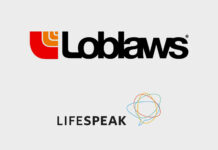The increasing demand for mental wellness solutions necessitates sophisticated branding strategies that resonate with a discerning and informed audience. This blog provides a comprehensive overview of effective marketing strategies tailored to enhance your brand’s presence and drive success in the mental wellness industry.
Understanding the Mental Wellness Market
Market Overview
The mental wellness market is experiencing robust growth, driven by heightened awareness and the destigmatization of mental health issues. The Global Wellness Institute reports that the mental wellness industry was valued at $121 billion in 2020, with an anticipated CAGR of 7.3% from 2021 to 2028. This expansion underscores the importance of strategic branding in capturing and retaining market share.
Key Demographics
Millennials and Gen Z are pivotal demographics within the mental wellness market. According to the American Psychological Association, 91% of Gen Z experienced at least one physical or emotional symptom due to stress in the past year. Understanding the specific needs and preferences of these age groups is crucial for effective brand positioning.
Top Marketing Strategies for Mental Wellness Branding
1. Authentic Storytelling
Why It Works: Authentic storytelling fosters deep emotional connections and builds trust with your audience. Harvard Business Review highlights that customers with an emotional connection to a brand exhibit a 306% higher lifetime value.
How to Implement:
Share Personal Stories: Integrate authentic narratives from your organization or community that highlight real-life experiences and challenges.
Engaging Content: Create and share content that educates, inspires, and engages your audience, such as infographics, videos, and informative blog posts.
Why It Works: Providing high-quality, informative content establishes your brand as an authority in the mental wellness industry. The Content Marketing Institute reports that 70% of consumers feel closer to a company due to content marketing.How to Implement:
Blog Posts and Articles: Regularly publish in-depth articles that offer valuable insights into mental wellness topics.
Why It Works: Testimonials and reviews provide essential social proof, building credibility and trust. BrightLocal found that 91% of consumers read online reviews before making a purchase.How to Implement:
Collect Testimonials: Proactively gather testimonials from satisfied customers to highlight their positive experiences.
Why It Works: Strategic partnerships enhance brand credibility and expand your reach. Edelman’s Trust Barometer reveals that 65% of consumers trust brands more when they are associated with other trusted entities.How to Implement:
Collaborate with Mental Health Organizations: Partner with reputable mental health organizations to co-create content and host events, leveraging their credibility.
Why It Works: Personalization enhances the relevance of your marketing efforts, driving higher engagement and conversions. Epsilon’s research indicates that 80% of consumers are more likely to purchase from brands that offer personalized experiences.How to Implement:
Segmentation: Utilize data analytics to segment your audience based on behavior, preferences, and demographics for targeted marketing.
Tailored Content: Develop personalized content and recommendations for different audience segments, ensuring relevance and engagement.
Email Campaigns: Execute targeted email campaigns that address the specific needs and interests of each segment, enhancing the effectiveness of your outreach.
In the competitive landscape of mental wellness, strategic branding is essential for success. By employing these advanced marketing strategies, you can build a robust brand that resonates with your audience, fosters trust, and drives growth. Remember, the key to effective branding in this sector lies in authenticity, community engagement, and providing valuable resources and support. As health manufacturers, marketers, and retailers, leveraging these insights will position your brand for sustained success in the mental wellness market.
Sources:
Global Wellness Institute. (2021). Mental Wellness: Pathways, Evidence and Horizons.
American Psychological Association. (2020). Stress in America 2020: A National Mental Health Crisis.
Harvard Business Review. (2019). The Value of Customer Loyalty.
Sprout Social. (2020). Social Media Trends Report.
Content Marketing Institute. (2021). B2C Content Marketing: Benchmarks, Budgets, and Trends.
BrightLocal. (2020). Local Consumer Review Survey.
Edelman. (2021). Trust Barometer.
Epsilon. (2018). The Power of Me: The Impact of Personalization on Marketing Performance.









